Garants
This web-page includes information about the garants supporting the IPTC’s application for Excellence Unit María de Maeztu.
María Jesús Ledesma Carbayo

María Jesús Ledesma Carbayo is a Full Professor in the Department of Electronic Engineering at the Universidad Politécnica de Madrid (UPM) and an affiliated scientist at the Centre for Biomedical Research Network (CIBER-BBN). A leading figure in Biomedical Engineering, her research focuses on developing advanced biomedical image processing and analysis techniques, with a strong emphasis on Artificial Intelligence (AI) and Machine Learning (ML) for healthcare applications. Her work aims to improve diagnostics, prognostics, and treatment guidance across various medical fields, including cardiology, pulmonology, oncology, and ophthalmology.
Professor Ledesma Carbayo has a distinguished international profile, including postdoctoral training at the US National Institutes of Health (NIH) supported by a prestigious Fulbright Fellowship. Her research has generated highly cited publications on topics like cardiac motion estimation, AI for glaucoma classification, lung interstitial disease analysis, and predicting cancer immunotherapy response.
Demonstrating significant leadership, she has played leading roles in international projects (e.g., EU FP7, EIT Health Catalyst Europe) and serves as an expert evaluator for top funding bodies like the European Research Council (ERC). Her innovative work translates into tangible impact through exploited international patents (licensed to companies like Imbio LLC and Leuko Labs Inc.) and the co-founding of the AI diagnostics spin-off, Spotlab SL.
Her contributions have been recognized with awards such as the highly competitive Leonardo Grant from the BBVA Foundation (2019). Professor Ledesma Carbayo actively mentors the next generation, having supervised numerous PhD theses, promoting high-impact innovation through Catalyst Europe and MITLinq and contributes to global health initiatives through collaborations with NGOs and foundations. Her work consistently bridges cutting-edge engineering with real-world clinical needs and societal benefit.
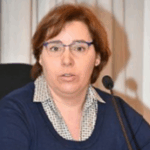
María Luisa López Vallejo
María Luisa López Vallejo is a Full Professor at the Universidad Politécnica de Madrid (UPM) in the Department of Electronic Engineering (ETSIT) and leads the Integrated Systems Laboratory (LSI) research group. Educated entirely at UPM (PhD 1999), she enhanced her profile with research stays at prestigious institutions including MIT, UC Berkeley, Bell Laboratories and Politecnico di Torino.
Her research focuses on cutting-edge areas within microelectronics and VLSI design, including low-power and energy-efficient circuits, nanometric technologies (addressing variability, reliability, and radiation effects), reconfigurable computing (FPGAs), emerging memories (RRAM/Memristors), hardware security (PUFs), neuromorphic computing and more recently heterogeneous integration and chiplets.
Professor López Vallejo is highly recognized nationally, holding 5 research sexenios and 1 transfer sexenio. She played influential roles in national science policy as a funding manager for the State Research Agency (AEI) in the ICT-Microelectronics area and is currently a member of the Spanish government’s high-level PERTE Chip expert group.
Internationally, her expertise is acknowledged through Editor and Associate Editor positions at top IEEE journals (Transactions on Nanotechnology and TCAS-I) and leadership roles in major conferences (ESSERC, ISLPED, PATMOS, DATE). She has led over 17 R&D projects, including five consecutive national plan grants, authored highly cited publications and three patents. In addition, she successfully supervised numerous PhD students (13), all achieving the highest distinction (Sobresaliente Cum Laude). Her profile integrates high-impact research, national strategic influence, international community leadership, and successful mentorship.
Pedro Reviriego Vasallo
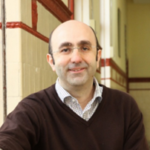
Pedro Reviriego is an accomplished researcher in computer and electrical engineering included in Stanford’s Top 2% Scientists in the field of Information & Communication Technologies (subfields Networking & Telecommunications and Computer Hardware & Architecture). His work spans high-impact areas such as Ethernet systems, energy-efficient computing, fault tolerance, and artificial intelligence. He played a key role in the development of commercial Ethernet transceivers, leading algorithm design for interference cancellation and contributing to the IEEE 802.3 standard. The resulting technology, commercialized by Intel, was widely adopted in millions of devices. He also made major contributions to energy-efficient networking through his work on the IEEE 802.3az standard (Energy Efficient Ethernet), in collaboration with Lawrence Berkeley National Laboratory and the University of South Florida. This initiative is now implemented in hundreds of millions of devices and earned him two Google Research Awards. In the aerospace sector, Reviriego helped develop the first European Ethernet transceiver for space as part of the H2020 SEPHY project and is currently working on switch architecture for NASA’s Lunar Gateway. He has also collaborated with NVIDIA to design patented algorithms for high-speed switches, deployed in data centers of BigTech companies. His contributions extend to fault-tolerant memory and energy-efficient stochastic computing, with influential publications and collaborations with AMD, University College Dublin, and University of Alberta. He has also advanced probabilistic data structures and robust machine learning algorithms, publishing pioneering work on faults in large language models (LLMs) and image generation. Reviriego is actively involved in evaluating LLMs using cognitive-science approaches, co-developing the first leaderboard for Spanish LLMs and a framework considering model energy costs.
He serves as Associate Editor for IEEE Transactions on Emerging Topics in Computing and has led a special issue on fault-tolerant machine learning. His research stands at the intersection of advanced hardware, robust computing, and responsible AI, bridging academic innovation and industrial impact.
Jesús Grajal de la Fuente

Jesús Grajal obtained his PhD in Telecommunications Engineering from the Universidad Politécnica de Madrid (UPM) and has been a full professor since 2017. He has always been involved in teaching and researching radiofrequency technologies and radar.
He has authored or co-authored over 240 publications, including 85 in high-impact factor journals. He has been involved in over 60 research projects and has been the PI on over 30 of them. He has led research projects funded by the public (National R&D and EU programmes) and private sectors, mainly with the European Space Agency (ESA), the European Defence Agency (EDA) and Indra.
Some of the publicly funded projects deserve to be highlighted: RAFTEC (Regional Government of Madrid, 2025–2028); MultiScan (National R&D Programme, 2021–2024); TeraRadar (National R&D Programme, 2012–2015); Terasense (Consolider-Ingenio 2010); Seduce (CENIT, 2008–2011); Spaderadar (Regional Government of Madrid, 2014–2019); and the Midas, Basilys and Eurigami projects, which are EU-funded. Regarding privately funded projects, emphasis can be placed on the Korrigan project, financed by the EDA, and several ESA projects in collaboration with Airbus, as well as a strong, permanent collaboration with Indra.
The following milestones can be highlighted as a result of these research activities:
- Development of European gallium nitride (GaN) technology (Korrigan with more than 40 million euros by EDA and Eurigami with 23 million euros by Horizon Europe).
- Development of European technology above 100 GHz (Midas project, FP7 of the EU).
- Development of millimetre and submillimetre-wave technology in Spain: Terasense (Consolider-Ingenio 2010 programme), TeraRadar and MultiScan (both National R&D Programme). Additionally, Spaderadar and RAFTEC (Regional Government of Madrid).
- Modernisation phase of the electronic warfare equipment for the European Eurofighter and F-110 frigate (in collaboration with Indra).
Currently, he is head of the Department of Signals, Systems and Radicommunications at UPM since December 2018.
Manuel Sierra Castañer
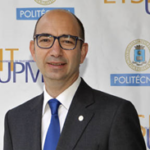
Manuel Sierra Castañer is Full Professor and Dean of the Higher Technical School of Telecommunication Engineers (ETSIT) at the Universidad Politécnica de Madrid (UPM), his alma mater (PhD 2000). He is an internationally acclaimed expert, particularly in antenna measurement techniques, recognized for pioneering advancements in near-field/far-field transformations, phaseless methods, and post-processing. He leads the LEHA-UPM laboratory, one of the few university labs globally with ISO 17025 accreditation, vital for high-precision measurements for space (ESA), defense, and advanced communications.
His outstanding contributions have garnered top honors: elevation to IEEE Fellow (effective 2025) and the AMTA Distinguished Achievement Award (2024), AMTA’s highest recognition and a first for a Spanish researcher. He is also an AMTA Fellow (2019) and received the IEEE Transactions on Antennas & Propagation Best Paper Schelkunoff Award (2007).
With nearly three decades of teaching, Professor Sierra Castañer is a prominent educator, notably through his leadership and teaching roles in the European School of Antennas (ESoA), focusing on antenna measurement courses worldwide. His extensive leadership experience includes a decade as UPM’s Director of Development Cooperation, Vice-President of EurAAP, and AMTA European Liaison.
He actively translates research into practice, co-founding the spin-off ASYSOL and collaborating with industry leader MVG. His profile is uniquely complemented by a deep commitment to social impact, currently serving as President of the EHAS Foundation, which leverages ICT for healthcare in developing regions. Professor Sierra Castañer exemplifies a holistic academic profile integrating cutting-edge research, global educational leadership, institutional management, and societal contribution.
Juan A. Besada Portas

Juan A. Besada Portas is a Full Professor at Universidad Politécnica de Madrid (UPM), where he leads internationally oriented and application-driven research in air traffic management (ATM) and drone systems. His work spans key technological areas including multisensor data fusion, aircraft trajectory prediction, and U-Space architectures for unmanned aerial traffic management. He has authored over 50 peer-reviewed journal articles (24 in top-tier Q1 journals), contributed to over 100 international conferences, and is co-inventor of seven international patents, several of which are being commercially exploited by companies such as Boeing.
He has participated in more than 45 competitive research projects—leading 15 of them—at both national and European levels. He has also led over 18 industry-oriented technology transfer projects, most notably in collaboration with Indra, a world leader in ATM systems. His research results have been integrated into widely deployed operational systems including SACTA, ManagAir, and iTEC, which support the management of over 30% of global air traffic. He also played a key role in the development of Spain’s current U-Space infrastructure for drone traffic management.
At the European level, he is deeply involved in strategic research governance. He was appointed member of the SESAR 2020 Scientific Committee (2017–2021), and since 2022 serves as Vice-Chair of the SESAR 3 Scientific Committee, overseeing a €1.6 billion European research program on the future of ATM. He is also an Honorary Member of the Global UTM Association (GUTMA), in recognition of his contributions to international drone traffic system harmonization.
He has supervised five PhD theses, collaborates with major aviation stakeholders worldwide, and regularly evaluates European research programs such as the Marie Skłodowska-Curie Fellowships.
Federico Álvarez García

Federico Álvarez is a Telecommunications Engineer (2003) and PhD (2009). He has been Full
Professor since 2022 at Universidad Politécnica de Madrid. He lectures in the areas of
communications and multimedia systems, both in bachelor and master. In 2006 he
worked as researcher at the IRT research center in Munich.
He has participated and coordinated during the last 10 years in numerous European projects,
being the principal investigator of 32 European projects since FP7. It should be noted that he
is currently the coordinator of the DAFNE+, Genomed4ALL and SYNTHEMA projects in the
European H2020 programme or Horizon Europe. He has also coordinated several European
consortia in H2020 and FP7 (10 in total). In total he has been coordinator of 43 competitive
projects.
In terms of scientific contributions, there are 46 publications in JCR journals, 19 of them in
journals in the top quartile (Q1), including several among the top 10% journals on the subject,
and 16 in Q2. He also contributes 4 book chapters and is the author of 6 complete books, in
addition to the edition of 3 books of the Springer publishing house on the theme of "Future
Internet" and numerous presentations (more than 50) in congresses of international scientific
relevance (IEEE, ACM, etc.) I have also made as a guest speaker by the organization
(keynote) 6 presentations in Europe and America, some directly invited by the European
Commission. I have participated in the technical committee of several congresses and has
received the award for the best paper in 2017 at an international congress.
He worked as an expert for the European Institute for Prospective Technological Studies in the
area of "mobile search" and has participated in standardization bodies such as DVB-ETSI or CENELC TC206. He has also founded 3 spin-offs in the last 10 years.
He has been a project evaluator for the European Commission, as well as for national science and technology bodies in Israel, Italy, Greece and Spain.
Luis Fernando D’Haro Enríquez

Dr. Luis Fernando D’Haro Enríquez is an Associate Professor in the Department of Electronic Engineering at Universidad Politécnica de Madrid (UPM), Spain, and a member of the Speech Technology and Machine Learning Group. His career is marked by significant international experience, including a four-year tenure as a Research Scientist at the Institute for Infocomm Research (I2R), A*STAR, Singapore, and research stays at AT&T Research Labs (USA), RWTH Aachen University (Germany), and Brno University of Technology (Czech Republic). He holds a PhD in Telecommunications Engineering from UPM, awarded Summa Cum Laude with a European Mention, and began his career with top honors in Colombia, including a national award for his thesis.
Dr. D’Haro’s research focuses on Human Language Technology, particularly Spoken Dialogue Systems, Conversational AI, automatic evaluation metrics, and the application of Large Language Models. He currently coordinates the prestigious €3.3M EIC Pathfinder project ASTOUND, investigating artificial consciousness in virtual agents based on the Attention Schema Theory. He also leads the nationally funded BEWORD project. His leadership extends to organizing key international challenges (DSTC series, IWSDS General Chair 2020) and serving on the editorial board of IEEE/ACM Transactions on Audio, Speech, and Language Processing.
With over 150 peer-reviewed publications, significant citation impact (h-index 30 on Google Scholar), and publications in top Q1 journals like TASLP and Expert Systems with Applications, his research output is substantial. Notable works include advancements in dialogue evaluation (AM-FM, D-Score, PoE) and LLM analysis. His industry engagement includes a patent with AT&T, a software license from A*STAR, and advising UPM teams in the Amazon Alexa Prize challenges. He actively supervises PhD students, contributing to the development of future researchers in the field.
Félix Cuadrado Latasa

Dr. Félix Cuadrado Latasa is a highly accomplished academic currently holding the position of Profesor Titular de Universidad (tenured Associate Professor equivalent) at the Universidad Politécnica de Madrid (UPM) in Spain, within the Department of Telematic Systems Engineering. He previously held significant roles in the UK, including Senior Lecturer at Queen Mary University of London (QMUL), where he coordinated the MSc in Big Data Science , and a prestigious Turing Fellowship at The Alan Turing Institute, the UK’s national centre for AI and data science.
Dr. Cuadrado earned his PhD in Telecommunications Engineering from UPM, receiving a national award from the Spanish Association of Telecommunication Engineers for his thesis on automating enterprise service management. His research focuses on the architecture, management, and analysis of large-scale distributed systems and networks, including cloud/edge computing, network measurement, and autonomic systems.
A central theme of his recent work is the development and analysis of large-scale temporal graphs – networks that evolve over time. He is a key figure behind Raphtory, a distributed, open-source engine designed specifically for building and analysing these dynamic graphs in real-time. This project, developed partly during his time associated with The Alan Turing Institute , aims to provide powerful tools for researchers across academia and industry.
His work demonstrates significant impact, evidenced by a strong publication record in reputable journals and conferences, and substantial citation metrics (h-index 22). Dr. Cuadrado’s established position at UPM, combined with his previous senior UK roles and Turing Fellowship, underscores his international standing and leadership in distributed systems and data science
Ángel F. García-Fernández
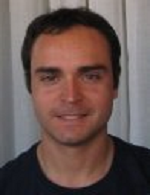
Dr. Ángel F. García-Fernández is an Associate Professor at the Universidad Politécnica de Madrid (UPM), specializing in Bayesian inference, statistical signal processing, and machine learning, with a primary focus on dynamic state estimation and multiple target tracking using Random Finite Sets. He holds a PhD (2011, ‘cum laude’) from UPM, supported by a prestigious FPU fellowship.
His international career includes roles as Senior Lecturer/Lecturer at the University of Liverpool (UK) and postdoctoral positions at leading institutions in Finland (Aalto University), Australia (Curtin University), and Sweden (Chalmers University).
Dr. García-Fernández has an impactful publication record, recognized by his inclusion in the Stanford Top 2% Scientists list and multiple Best Paper awards from the premier International Conference on Information Fusion and the IEEE International Conference on Multisensor Fusion and Integration for Intelligent Systems. He has also delivered a tutorial on multiple target tracking at the Fusion conference on multiple occasions. His research has tangible impact, with algorithms and metrics he co-developed being adopted into industry-standard software like MATLAB and TensorFlow Probability (experimental). His Github repository, which includes software to reproduce research outputs, is a reference in the multiple target tracking field, and helps vast dissemination of research outputs.
Dr. García-Fernández has supervised a large number of PhD students, mainly through industry-funded collaborations, demonstrating a significant leadership in research training and knowledge transfer. He has also hosted visits from several PhD students from other institutions (Chalmers, Aalto, NTNU).
He has a strong track record in securing funding and leading research projects with major industry partners (Indra, Leonardo, Sintela, GMV, Unilever, Roke), governmental agencies (DSTL, ESA, GCHQ) and charities (Royal Society). His expertise is sought after for editorial roles (IEEE journals/conferences) and grant reviews (EPSRC College).

